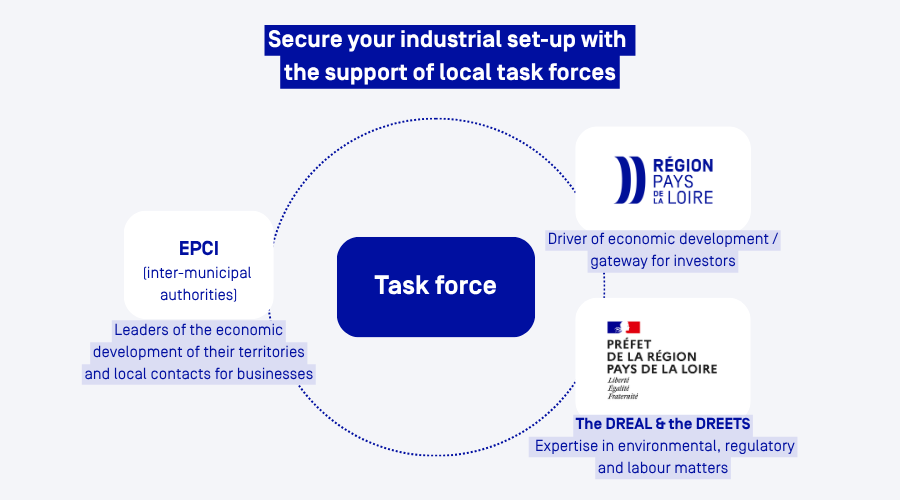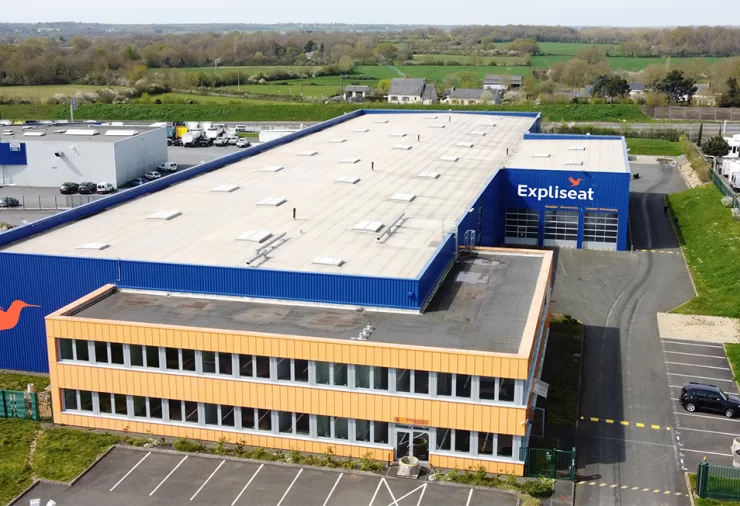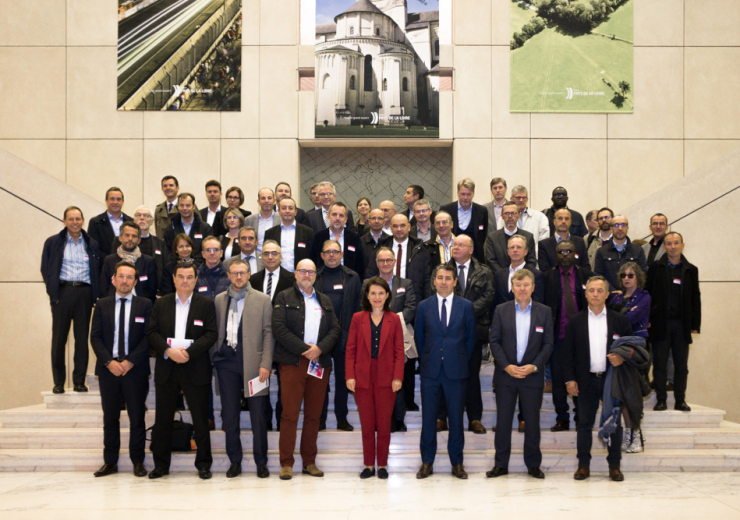Setting up a factory is a strategic step that shapes a company’s future. It is a major and often costly undertaking that requires foresight, precision, and coordination with numerous public and private stakeholders. Bear in mind that a delay of just eight months in a factory setup project can generate a financial loss of close to €700,000*!
To support international companies expanding in Atlantic France, the regional council launched the Land Accelerator. Nine major industrial sites have been identified, each supported by a dedicated local task force. Their mission is to secure and accelerate establishment projects, enabling companies to focus on their growth and development.
What is a local task force?
A local task force is a partnership body created to secure and accelerate industrial development projects in the Atlantic France region. Its strength? It brings together the relevant public and economic stakeholders involved in your project, saving you valuable time, reducing risks, and increasing your chances of success.
In concrete terms, here are the stakeholders gathered around the table and working to the same schedule:
- The EPCI (inter-municipal cooperation institutions): they drive the economic development in their territories and act as local contacts for businesses.
- The Atlantic France regional council: responsible for regional economic development. It is represented locally by the Maison de Région, the gateway to the departments, and Solutions&co, its economic development agency.
- The sub-prefect: as the representative of the French State, the sub-prefect ensures effective coordination of decentralised services, including the DREAL (Regional Directorate for the Environment, Development and Housing) and the DREETS (Regional Directorates for the Economy, Employment, Labour and Solidarity).These bodies provide expertise in environmental, regulatory, and labour matters.
By fostering this collective and cross-cutting approach, the regional council guarantees that project leaders benefit from maximum responsiveness, greater clarity in procedures, and the full mobilisation of all public and private resources.

What are the concrete benefits for your company?
During the site development phase
- In-depth assessment of the land
- Anticipation of regulatory and administrative procedures
- Project risk assessment: technical, network (water, energy, telecoms), legal and environmental analyses
- Quick and accurate feedback on the project’s feasibility
During the implementation phase
- Preliminary assessment of the building permit to accelerate the approval process
- Anticipation and management of environmental studies
- Assistance in identifying and mobilising available financial aid and public funding schemes
- Direct contact with regional business, innovation, and research networks
- Recruitment support, with concrete solutions to attract and train talent
- Post-installation follow-up to ensure a smooth plant ramp-up
- Tight control over the schedule and reduced uncertainty- key factors for reassuring investors
Which industrial sites benefit from the support of task forces?
Today, nine major industrial sites benefit from the support of local task forces in Atlantic France. These sites each cover more than 10 hectares or include large industrial buildings that are strategic for the development of the region.
Discover the sites supported by a task force
A region united around its industry
Beyond the technical dimension, this initiative reflects the spirit of a region that places industry and its entrepreneurs at the heart of its economic development strategy. The Atlantic France region positions itself as a welcoming, competitive and innovative territory, capable of rivalling the major European industrial regions.
Local task forces are part of a broader ecosystem that includes regional financial mechanisms, support from Bpifrance, national programmes such as France 2030, innovation networks and sectoral clusters. Together, these combined levers create a favourable and reassuring environment for any industrial project leader.
*sources: Guillot Report 2022 & SCET Guide – ‘Réussir son implantation industrielle’ (Successful industrial establishment)


 日本語
日本語  Français
Français 


